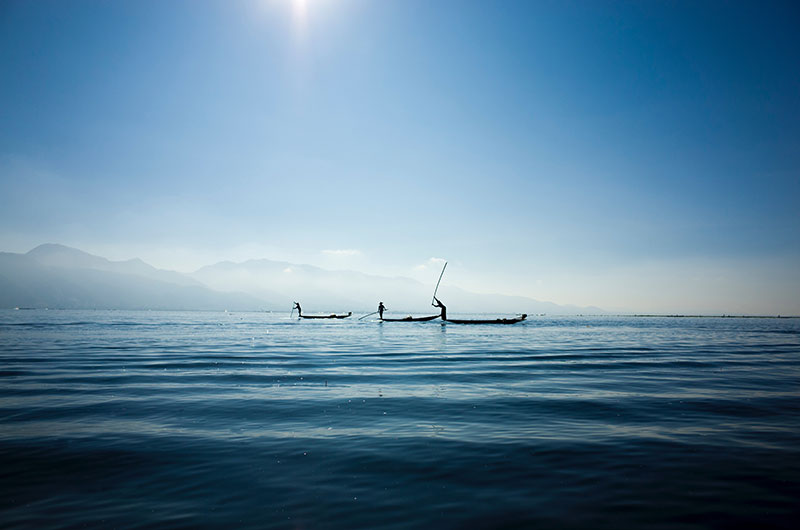There are 1,000’s of opportunities in this sector, here are a few examples:
- Fisherman
- Fishing boat captain or fishing charter operator
- Fisheries officers
- Fish and seafood brokers
- Fish processor
- Marine scientist, a marine environment economist, a fish biologist, a fish observer, a research chemist
- Manager of a fish processing plant
Fisherman: A fisherman or fisher is someone who captures fish and other animals from a body of water or gathers shellfish. Worldwide, there are about 38 million commercial and subsistence fishermen and fish farmers. Fishermen may be professional or recreational and may be both men or women. Fishing has existed as a means of obtaining food since the Mesolithic period.
Fishing boat captain or fishing charter operator: Fishers and boat captains who operation fishing boats retrieve fish and other water animal products from oceans, seas, lakes and rivers. A crew consists of a captain, first mate, a boatswain, known as a deckboss on smaller ships, and laborers known as deckhands. These crew members are necessary to man a commercial fishing boat mile away from the harbor. The captain supervises and coordinates all the activities on a fishing boat, including: planning the fishing trip by determining where to fish and what kind of fish to catch, the length of the trip, and the processing plants to sell the fish.
Fisheries officers :A fishery officer investigates, detects and prevents the pollution of waters to protect the aquatic environment, and also protects the general public from consuming toxic and bacteriological contaminated fish and shellfish that can lead to serious health problems. A fishery officer is the government's first line of support. They are trained to carry out a large range of duties both on land and at sea. They participate in public education and in awareness of habitat protection and fishery resources. They enforce the fisheries act and other regulations and they protect fish habitats and resources by conducting patrols at sea, in the air and on land.
Fish and seafood brokers: A broker sells the product for a producer to a buyer further down the distribution chain, usually a retailer or food service outlet. When the producer enlists the services of a broker, he outsources his marketing function, including sales and promotion responsibilities. While the seafood broker finds markets, arranges logistics, and secures payment, the producer remains the owner of the product until it reaches the buyer. Broker services range from moving large volumes of product to grocers or secondary processors, to representing small amounts of product to niche markets. For this service, a broker receives a commission on the sale value.
Fish processor: Seafood Processors are found in seafood processing units and complete the following duties: cleaning and filleting products, placing raw materials on belts, discarding defective items, operating machines to move seafood, and ensuring workspace cleanliness and safety. A Seafood Processor should have the following skills: good practical abilities, dexterity, knowledge of food safety standards, teamwork, time management, and organization.
Marine scientist: Marine scientists research the sea and study its interactions with its organisms, sea floors, coastal areas and the atmosphere.Marine scientists may work in the field, in an office setting or on a sea vessel such as a floating laboratory.
Marine environment economist: A job as a Marine Resource Economist falls under the broader career category of Environmental Economists. Here is the job description for Environmental Economists: Conduct economic analysis related to environmental protection and use of the natural environment, such as water, air, land, and renewable energy resources. Evaluate and quantify benefits, costs, incentives, and impacts of alternative options using economic principles and statistical techniques.
Fish biologist: Fisheries biologists are scientists who study fish and their habitats. Because fisheries biology is mostly focused on the behavior of fish in their natural surroundings, scientists who work in this profession spend a lot of time outside. This career is a good choice for anyone who is interested in biology and likes to spend time in wilderness areas (https://work.chron.com/job-description-fisheries-biologist-18553.html).
Fish observer: A fisheries observer is an independent specialist who serves on board commercial fishing vessels, or in fish processing plants and other platforms, and is employed by a fisheries observer program, either directly by a government agency or by a third party contractor. Observers spend anywhere from 1 day to 3 months out at sea before returning to be “debriefed”. A debriefing consists of reviewing any unusual occurrences or observations, violations observed, and any safety problems or other hardships they endured during the trip. These data are then integrated into the regional agency’s database used to monitor fish quotas. Observers are usually the only independent data collection source for some types of at-sea information, such as bycatch, catch composition, and gear configuration data. Independent data collection in this context refers to data that is not potentially biased by the fishermen. Creel surveys, trip reports, and other data obtained directly from fishermen can have some dependent bias associated with it. Fisheries-dependent information is critical for the responsible management and conservation of living marine resources, and many worldwide marine resource management regimes utilize fisheries observers for the collection of this data. The integrity of a fisheries observer program is a function of the conduct, morale, and performance of its employees. Moreover, the stature and stability of a program has direct bearing on the quality of its data products and on the level of confidence that scientists, managers, and policy makers are able to ascribe to the use of this data.
Research chemist: Research scientists are responsible for designing, undertaking and analysing information from controlled laboratory-based investigations, experiments and trials. You could work for government laboratories, environmental organisations, specialistresearch organisations or universities.
Manager of a fish processing plant: A manager is responsible for Safety, Quality, Production, Sanitation, Shipping, Receiving, and Maintenance, as well as recruiting, motivating and retaining a processing team on multiple shifts.


























